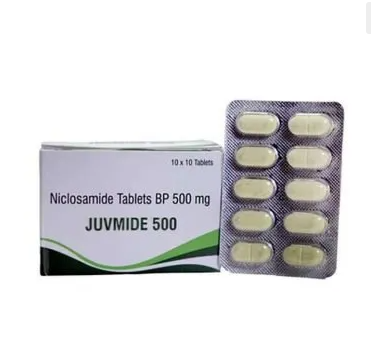Niclosamide is a medication that has gained attention for its potential uses beyond its originally intended purpose. This article explores the various uses of Niclosamide, its side effects, and its role in the world of medicines.
Niclosamide Uses
Anthelminthic Agent
Buy Niclosamide is primarily known as an anthelminthic agent, which means it is used to treat parasitic worm infections. It is effective against a range of intestinal parasites, including tapeworms. The medication works by disrupting the energy production in the parasites, leading to their expulsion from the body.
Anti-Cancer Properties
Niclosamide 500 mg has garnered significant interest in the field of oncology. Researchers have discovered that Niclosamide exhibits anti-cancer properties by inhibiting various signaling pathways associated with cancer cell growth and metastasis. It has shown potential in the treatment of several types of cancer, including breast, colon, and prostate cancer. Clinical trials are ongoing to further explore its anti-cancer effects.
Antiviral Agent
In the wake of the COVID-19 pandemic, Niclosamide gained attention as a potential antiviral agent. Studies have suggested that it may have the ability to inhibit the replication of certain viruses, including coronaviruses. While it is not a primary treatment for viral infections, ongoing research is investigating its role in combating various viral diseases.
Anti-Inflammatory Effects
Niclosamide has been studied for its anti-inflammatory properties. It can modulate the immune response and reduce inflammation, making it a potential candidate for the treatment of autoimmune diseases, such as rheumatoid arthritis and inflammatory bowel disease. However, more research is needed in this area.
Niclosamide Side Effects
Like any medication, Niclosamide is associated with potential side effects. It is crucial to consult a healthcare professional before using Niclosamide, especially when considering off-label uses. Common side effects include:
Gastrointestinal Issues
Niclosamide may cause gastrointestinal problems, such as nausea, vomiting, abdominal pain, and diarrhea. These symptoms are more common when used as an anthelminthic agent.
Allergic Reactions
In some cases, Niclosamide can lead to allergic reactions, which may include skin rashes, itching, swelling, and difficulty breathing. Seek medical attention immediately if any of these symptoms occur.
Neurological Effects
Niclosamide has been associated with neurological side effects, such as headaches, dizziness, and confusion. These side effects are relatively rare but should be reported to a healthcare provider.
Liver Function
There have been reports of Niclosamide affecting liver function, leading to elevated liver enzymes. Regular monitoring is recommended when using this medication, especially in cases of extended use.
Niclosamide in Medicines
Niclosamide is available in various forms, including tablets and oral suspensions. It is typically prescribed by a healthcare professional for the treatment of parasitic infections. However, the off-label use of Niclosamide for cancer and viral diseases is gaining attention, and it may be prescribed in specialized cases. Clinical trials are essential to evaluate its safety and efficacy for these alternative uses.
Conclusion
Niclosamide is a versatile medication with a wide range of potential uses. While it is primarily known as an anthelminthic agent, ongoing research is exploring its effectiveness in the treatment of cancer and viral diseases. As with any medication, it is essential to be aware of potential side effects and consult with a healthcare professional before using Niclosamide for any purpose. The future holds promise for Niclosamide as a versatile tool in the world of medicine, potentially offering new solutions for various health conditions.



